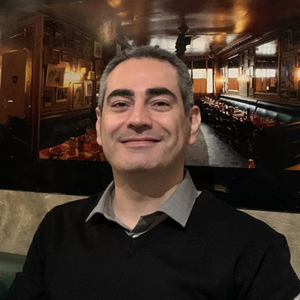
Pascal ADALIAN (France) - President
Pascal Adalian is a Professor and head of the Department of Physical Anthropology of Aix-Marseilles University. He is the Director of the MSc in Physical Anthropology at the Faculty of Medicine in Marseilles, and is certified judiciary expert in Forensic Anthropology. He has collaborated for many years with the Forensic Medicine Department of Marseilles, for which he acts as an external consultant. His research interests and activities cover forensic anthropology, corpse identification and methodological approaches for biological profiling. He also specifically develops methods concerning age estimation of very young juvenile skeletons.
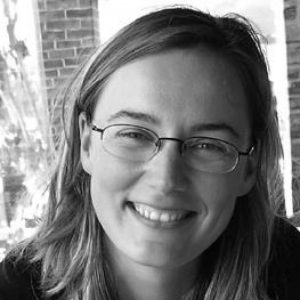
Zuzana OBERTOVA (Slovakia / Australia) - Vice-President
Zuzana Obertová is a biological/forensic anthropologist with doctorates in biological anthropology and palaeoanthropology from the Comenius University in Bratislava (Slovakia) and the Eberhard-Karls University in Tübingen (Germany), and in Community Health from the University of Auckland (New Zealand). In the postdoc phase, she worked on projects on age estimation and identification of living persons (the Institute of Forensic Medicine, the University Clinic, Düsseldorf, Germany), and on trauma dating (LABANOF, the University of Milan, Italy). Currently, she is employed as scientific researcher and forensic expert in the Visual Identification of Persons (ViP) at the Forensic Science Institute in Zürich (Switzerland), and she is also Adjunct Lecturer at the Centre for Forensic Anthropology, The University of Western Australia. She is Assistant Editor of the journal Forensic Science International.
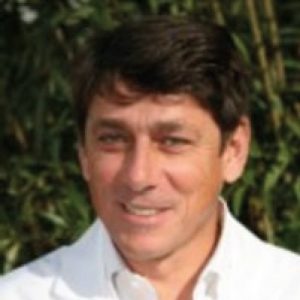
Eric BACCINO (France) - Honorary President
Eric Baccino is professor and head of the research laboratory of legal medicine and clinical toxicology at the Faculty of medicine, University of Montpellier (France). He is head of the medico-legal unit (clinical forensic medicine and pathology) at the University Hospital of Montpellier (CHU). His research interests and activities include clinical forensic medicine, forensic anthropology and identification.
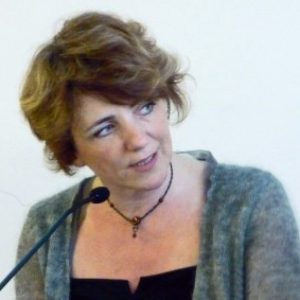
Cristina CATTANEO (Italy) - Past President
Cristina Cattaneo is forensic pathologist and anthropologist, currently full professor of Legal Medicine at the Faculty of Medicine of the Università degli Studi di Milano (Italy) and founder and director of LABANOF (Laboratorio di Antropologia e Odontologia Forense) at the Institute of Legal Medicine of the Dipartimento di Scienze Biomediche per la Salute. Cristina also teaches Anthropology at the Faculty of Sciences and Arts of the same University and is associate editor for the journal Forensic Science International and a member of the Swiss DVI (Disaster Victim Identification) team.
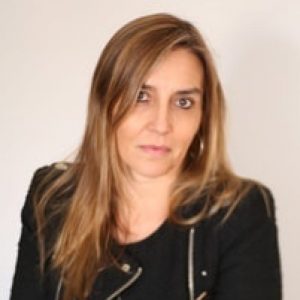
Eugenia CUNHA (Portugal) - Past President
Eugénia Cunha is a full professor at the University of Coimbra since 2003 and, since 2018, she is the Director of the National Institute of Legal Medicine and Forensic Sciences (NILMFS) , South Delegation, Lisbon. She is/was invited teacher in Brazil, France, Spain, and USA (Stanford University). She acts as a National Consultant for Forensic Anthropology at the NILMFS in Portugal since 1997. Eugénia is a fellow of the American Academy of Forensic Sciences in the Anthropology Section. She was nominated president of FASE (whose co-founder is) in 2009 (until 2016) and she is now vice-president of the Brazilian Association of Forensic Anthropology. She is a Member of Pathology and Anthropology Sub-group, Interpol DVI Working Group. She is acting as a forensic anthropology expert in international missions in several countries focused on crimes against humanity and human rights violations.Her research interests cover age and ancestry estimation methods and skeletal pathologies.
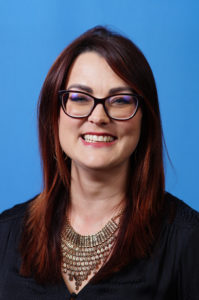
Desiré BRITS (South-Africa) - Secretary
Desiré Brits is an associate professor at the University of the Witwatersrand and the Head of the Division of Biological Anthropology in the School of Anatomical Sciences. She is a member of the Human Identification Unit (HIU) of the Human Variation and Identification Research Unit (HVIRU) in the School of Anatomical Sciences and has been consulting on forensic anthropology cases for the South African Police Service (SAPS) and Forensic Pathology Services (FPS) over the past 15 years. Her current research interests include understanding bone biomechanics to aid in skeletal trauma analysis as well as establishing skeletal identification methods, specific to South African populations, using medical image modalities. Desiré is an associate member of the American Academy of Forensic Sciences (AAFS) and a lifetime member of the Anatomical Society of Southern Africa (ASSA) where she has served on the council since 2012. She is the secretary of the Forensic Anthropology Society of Europe (FASE) and was certified as a level I, independent practicing forensic anthropologist, by FASE in 2023.
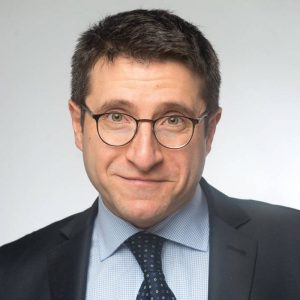
Tony FRACASSO (Switzerland) - Treasurer
Tony Fracasso is a forensic pathologist, professor of Legal Medicine at the University of Geneva. He is the head of the Forensic medicine and pathology unit of the University center of Legal Medicine, Lausanne-Geneva.
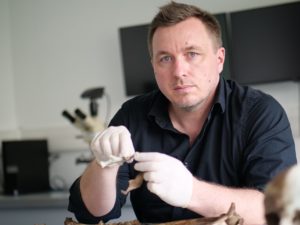
Benoir BERTRAND (France) - Board member
Benoit Bertrand is Associate Professor of forensic anthropology at the School of Medicine, University of Lille (France) and is co-director of the Forensic Taphonomy and Anatomy Unit (UTMLA) at the forensic institute in Lille. Prior to joining the School of Medicine, he worked as a bioarcheologist at the Department of Archaeology in Douai (France) and gained extensive experience in fieldwork. From 2010 to 2016, he also served as the Director of the Archaeology Microanalytical Laboratory. His main research focuses on age-at-death estimation based on histological investigations. He has been the recipient of the Marie Skłodowska-Curie Actions Cofund award for postdoc and have been awarded the “Société d'Anthropologie de Paris” prize in 2019 price for the best PhD dissertation, as well as the “Fondation de France” scholarship international prize in 2022. He has contributed to inter-institutional projects and has conducted casework in forensic anthropology with the development of approaches that apply principles and methods from bioarcheology within the framework of the criminal justice system. Since 2022, he is a certified expert witness at the Court of Appeal of the French legal system.
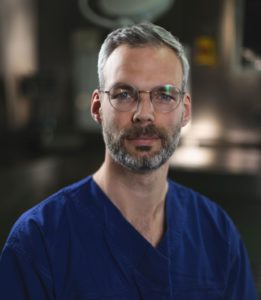
Hans DE BOER (Netherlands / Australia) - Board member
Hans de Boer is a full-time forensic pathologist at the Victorian Institute of Forensic Medicine (VIFM) and adj. assoc. professor at the Dept. of Forensic Medicine of Monash University in Melbourne, Australia. His research interests are broad and include various subjects on the intersection between forensic anthropology and forensic pathology such as DVI, post-mortem imaging, fracture dating, skeletal trauma analysis, and interpreting and communicating forensic evidence. He is member of the INTERPOL DVI sub-working group for pathology and anthropology and sits on the editorial board of the International Journal of Legal Medicine and Forensic Science Research.
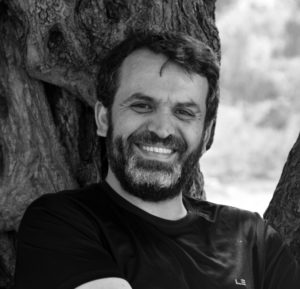
Oguzhan EKIZOGLU (Turkey) - Board member
Oguzhan Ekizoglu is a medical doctor, graduate of the University of Istanbul, Faculty of Medicine (2004) and Department of Legal Medicine (2009). He is currently associate professor of Department in Legal Medicine at the Izmir Tepecik Training and Research Hospital (Turkey) and also works a Phd candidate in University Center of Legal Medicine, Lausanne-Geneva (CURML) on a age estimation project. His researches focus on radiological methods of age estimation on the living individuals, virtual methods of sex estimation, interpersonal violence evaluation especially violence against women, development of clinical medicine center and neuroscience studies.
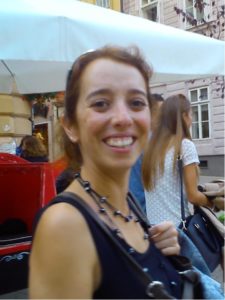
Maria Teresa FERREIRA (Portugal) - Board member
Maria Teresa Ferreira, PhD in Forensic Anthropology, is Assistant Professor at the Department of Life Sciences, University of Coimbra in Coimbra (Portugal). She is co-curator of the 21st Century Identified Skeleton Collection, housed at the Forensic Anthropology Laboratory of the University of Coimbra. Her research interests include field anthropology, biological profile methods, taphonomy, and trauma. She also works in archaeological collections, being the coordinator of the project “Bioarchaeology of Slavery: the African slaves’ skeletal collection from Valle da Gafaria (Lagos, Portugal – 15th-17th centuries)”.
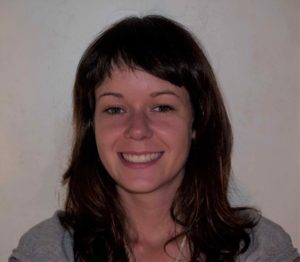
Julieta GOMEZ (UK / Spain) - Board member
Julieta Gómez García-Donas holds a MSc and a PhD in forensic anthropology from the University of Edinburgh. She is currently a lecturer and researcher at the Centre for Anatomy and Human Identification at the School of Science and Engineering (University of Dundee, UK) and the programme lead for the MSc in Anatomy and Advanced Forensic Anthropology. Julieta facilitates teaching for undergraduate and postgraduate students, as well as supervising dissertation projects. She is a fellow of the Higher Education Academy (UK). Julieta has worked with both archaeological and contemporary collections on the Mediterranean area in countries such as Spain, Crete and Cyprus. Her research interests focus on forensic identification macroscopic methods for the biological profile in relation to sex, age and ancestry. One of her areas of expertise is bone histomorphometry exploring different skeletal elements and populations, aging and age estimation techniques, biomechanics and new technological approaches for the assessment of bone microstructure.
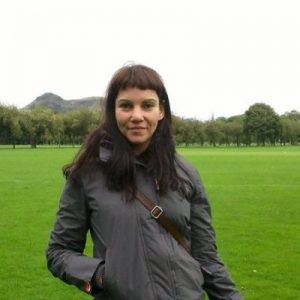
Elena KRANIOTI (Greece) - Board member
Elena Kranioti is a medical doctor, graduate of the University of Crete (2003) and a certified Forensic Pathologist (2007) in Greece. In 2007 she was awarded with a Marie Curie Fellowship at the Natural History Museum in Spain, within the framework of EVAN, a European training network with focus on Virtual Anthropology and Geometric-Morphometrics. In 2009 she completed her PhD at the University of Crete and became Lecturer in Forensic Anthropology at the University of Edinburgh (2010-2019). She is currently Assistant Professor in Forensic Medicine, founding member of the Edinburgh Forensic Radiology and Anthropology Imaging Centre (EFRAIC). Elena is the first Greek national with a diploma in Forensic Radiology and Virtopsy from the University of Zurich and the first forensic pathologist in Greece to apply post-mortem CT in forensic casework.
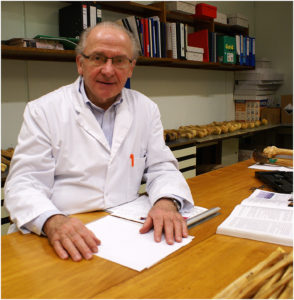
Philippe LEFEVRE (Belgium) - Board member
Philippe Lefèvre is emeritus professor in human anatomy. He is currently guest researcher in the Laboratory of Anatomy, Biomechanics and Organogenesis (L.A.B.O) – Forensic Anthropology Unit (Faculty of Medicine – Université Libre de Bruxelles). He also works on different bones collections in the Royal Belgian Institute of Natural Sciences. Expert in forensic anthropology for the DVI Belgium and at the Medico-Legal Institute Hainaut-Namur (Belgium). C-Fase honoris causa and guest professor in the Belgian Royal Academic College (section : forensic anthropology) under the auspices of the Collège de France. Osteology, morphology, identification methods, bones reconstruction 3D, estimation of age with histological method, estimation of age in the living and estimation of the stature are his favorite fields of research.
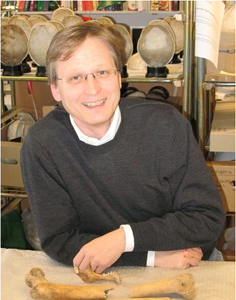
Niels LYNNERUP (Denmark) - Board member
Niels Lynnerup, Professor of Forensic Anthropology, is an MD and head of the Department of Forensic Medicine at the University of Copenhagen, Denmark. His research comprises both the living (photogrammetry, age-evaluation and gait analyses) as well as the dead (paleodemography, paleopathology, stable isotopes, aDNA and CT-scanning and 3D visualisation techniques).
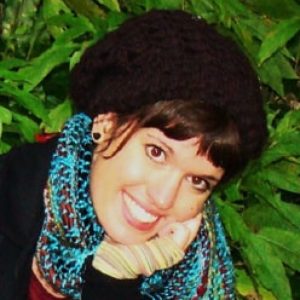
Anja PETAROS (Croatio / Sweden) - Board member
Anja Petaros, MD, PhD is a specialist in forensic pathology and a FASE certified forensic anthropologist working at the National Board of Forensic Medicine in Linköping, Sweden. She began her specialization in Rijeka, Croatia where she obtained a PhD in forensic pathology (with a forensic anthropology topic - sexual dimorphism of the mastoid process evaluated by digital methods) and established the first anthropological laboratory linked to a forensic medicine department. She continues to work with forensic anthropological cases in Sweden where she is also actively promoting forensic anthropology and its recognition as an autonomous forensic discipline. Even she is mostly involved in solving practical cases and in the standardisation of the management of forensic anthropology cases, she is still conducting research, mostly in the area of taphonomy. Her other research interest include skeletal trauma and identification. She is an active member of FASE board since 2012. She is also a board member of the Swedish Forensic-Archaeological Network (FORARK).
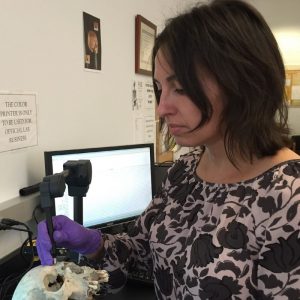
Ann ROSS (USA) - Board member
Ann H. Ross, Ph.D., D-ABFA, is a professor of Anthropology and Director of the Sciences Institute, North Carolina State University and Consults for the Office of the Chief Medical Examiner’s and law enforcement agencies in North Carolina. Professor Ross has been committed to human rights and disaster work and has deployed to Bosnia after the Genocide, worked for a number of years for the Panamanian Truth Commission and is still the forensic anthropology expert for the Institute of Legal Medicine. Professor Ross has worked in Chile, helped identify deceased after Hurricane Katrina and US Citizens who perished in the Haiti Earthquake.
